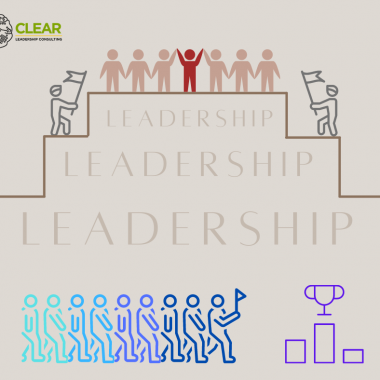Prepared by : Maria Liza V. Fresnido | July 30, 2020
“Empathy is seeing with the eyes of another, listening with the ears of another and feeling with the heart of another.” – Alfred Adler

Being intelligent doesn’t necessarily mean one’s credentials and grades look good on paper. If one’s intellect is only limited in numerical value, then it won’t take you further in life and reach beyond substantial achievements. Emotions, after all, are what makes us human. What we feel is the root of our every action and thought. “Psychologist Daniel Goleman estimates that, at best, IQ makes up only 20 percent of the factors that determine life success, while other forces, such as EQ, wealth, temperament, family education levels and pure luck make up the balance.” (Kadane, 2018)
Of course, the fact that a high IQ and having great cognitive skills is definitely an advantage shouldn’t be dismissed. However, it should be stressed that emotional intelligence walks alongside it in order to achieve not only a successful life, but a meaningful one as well. According to the website, Diffen; “emotional intelligence allows one to identify, evaluate, control, and express one’s emotions to facilitate thinking.” In a workplace, this usually tackles the subject of leadership, collaboration, effective communication, building relationships, and being able to get into the head of clients and consumers.

Another definition of Emotional intelligence by Peter Salovey and John Mayer, states that it is “the ability to monitor one’s own and other people’s emotions, to discriminate between different emotions and label them appropriately, and to use emotional information to guide thinking and behavior”.
Daniel Goleman and Robert E. Boyatzis (HBR 2017) has written that Emotional Intelligence (EI) has 12 elements in a model of EI and leadership excellence they have developed from their study of the strengths of outstanding leaders for over 30 years. They have discovered that “having a well-balanced array of specific EI capabilities actually prepares a leader” to take on touch challenges at work.
According to Goleman and Boyatzis (HBR 2017), “There are many models of emotional intelligence, each with its own set of abilities; they are often lumped together as “EQ” in the popular vernacular. We prefer “EI,” which we define as comprising four domains: self-awareness, self-management, social awareness, and relationship management. Nested within each domain are twelve EI competencies, learned and learnable capabilities that allow outstanding performance at work or as a leader (see the image below)
In order to excel, leaders need to develop a balance of strengths across the suite of EI competencies. When they do that, excellent business results follow.
How can you tell where your EI needs improvement — especially if you feel that it’s strong in some areas?
Simply reviewing the 12 competencies in your mind can give you a sense of where you might need some development. There are a number of formal models of EI, and many of them come with their own assessment tools. When choosing a tool to use, consider how well it predicts leadership outcomes. Some assess how you see yourself; these correlate highly with personality tests, which also tap into a person’s “self-schema.” Others, like that of Yale University president Peter Salovey and his colleagues, define EI as an ability; their test, the MSCEIT (a commercially available product), correlates more highly with IQ than any other EI test.
We recommend comprehensive 360-degree assessments, which collect both self-ratings and the views of others who know you well. This external feedback is particularly helpful for evaluating all areas of EI, including self-awareness (how would you know that you are not self-aware?). You can get a rough gauge of where your strengths and weaknesses lie by asking those who work with you to give you feedback. The more people you ask, the better a picture you get.

Formal 360-degree assessments, which incorporate systematic, anonymous observations of your behavior by people who work with you, have been found to not correlate well with IQ or personality, but they are the best predictors of a leader’s effectiveness, actual business performance, engagement, and job (and life) satisfaction. Into this category fall our own model and the Emotional and Social Competency Inventory, or ESCI 360, a commercially available assessment we developed with Korn Ferry Hay Group to gauge the 12 EI competencies, which rely on how others rate observable behaviors in evaluating a leader. The larger the gap between a leader’s self-ratings and how others see them, research finds, the fewer EI strengths the leader actually shows, and the poorer the business results.
These assessments are critical to a full evaluation of your EI, but even understanding that these 12 competencies are all a part of your emotional intelligence is an important first step in addressing areas where your EI is at its weakest. Coaching is the most effective method for improving in areas of EI deficit. Having expert support during your ups and downs as you practice operating in a new way is invaluable.
Even people with many apparent leadership strengths can stand to better understand those areas of EI where we have room to grow. Don’t shortchange your development as a leader by assuming that EI is all about being sweet and chipper, or that your EI is perfect if you are — or, even worse, assume that EI can’t help you excel in your career.”
Reference:
https://www.diffen.com/difference/EQ_vs_IQ
https://hbr.org/2017/02/emotional-intelligence-has-12-elements-which-do-you-need-to-work-on







